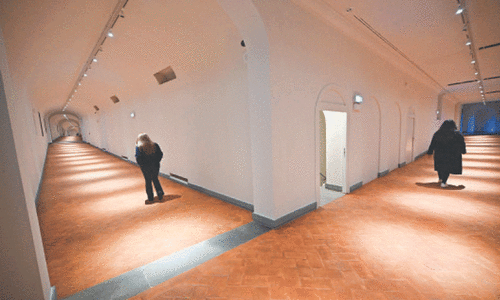COLOMBO: With the 20-year-old ethnic conflict in Sri Lanka failing to reach a workable solution, LTTE political adviser, Anton Balasingham is a worried man.
He is also a very sick man, suffering from a long drawn illness that is an immense source of worry to the guerrilla LTTE chief, Vellupillai Prabhakaran, who depends on Balasingham, domiciled in England to portray the LTTE in a positive 'non terrorist' light internationally.
In an interview with this writer last month, when he arrived in the country to rejuvenate the stagnant peace process, Balasingham's most preferred topic was his latest and controversial book 'War and Peace: Armed Struggle and Peace Efforts of Liberation Tigers'. The book also includes three chapters authored by his Australian-born wife, Adele Balasingham.
The book, which hit the racks last month, is pointed out by Balasingham as something he just had to do to 'portray the history of Indian involvement in Sri Lanka's protracted conflict'.
His portrayal begins with India's concerns about the racial upheaval in 1983 where Tamils were subject to racial violence and continues into jarring domain. The most jostling revelations in the book is the fact that the LTTE leader Velupillai Prabhakaran rejected Indian Prime Minister Rajiv Gandhi's offer to sign a "secret" agreement with him in July 1987.
The reasons for the refusal is cited by Balasingham in his book to be 'because he did not believe that India would implement that agreement', says Balasingham.
Referring in his book to a Rajiv-Prabhakaran meeting taken place just before the Indian prime minister was to fly to Sri Lanka to sign the India-Sri Lanka peace accord, Balasingham quotes Rajiv as telling Prabhakaran: "I am prepared to enter into a secret agreement with you regarding the formation of an interim government in the Tamil region."
According to Balasingham, Rajiv had also offered to give the LTTE Rs 5 million per month. The book also states that the Indian prime minister, discussing with Prabhakaran the question of decommissioning of weapons, had advised the LTTE to carry out only a 'mock' laying down of arms.
"These things had to be said. I felt a need to open up to the world the truth about India's involvement with us and with the ethnic issue. My book should be read in the present context relating to India, at a time when India is about to make the mistake of becoming involved in Sri Lanka in a way that Tamils do not want them to", Balasingham told Dawn referring to the proposed defence pact between Sri Lanka and India.
He also stated that he felt that the 'entire war-peace history' between the LTTE and the President Kumaratunge, beginning after she was sworn in as prime minister on August 19, 1994, and ending in April 1995 had to be cleared 'justifying' the LTTE's resumption of hostilities.
In this context detailed letters between President Kumaratunge and Velupillai Prabhakaran and those exchanged between the LTTE political wing head, S. P. Thamilchelvam and the then secretary of defence, Chandrananda de Silva are reproduced in full.
Seated in the plush LTTE headquarters of the de facto government of the LTTE in northern Killinochchi, Balasingham is calm enough - although the explosive revelations mentioned in his book has apparently caused uproars in the Indian political circles.
In Balasingham's contention, India is now 'the outsider' as opposed to Norway - the country facilitating the peace process between the LTTE and the government. "If there was a country that should understand the Tamil cause it should be India.
Unfortunately, it seems that nothing positive for the Tamils is likely to come from India in its defence deals with the government ", says Balasingham, who does not touch on the subject that Prabhakaran is wanted by India for the masterminding the assassination of Rajiv Gandhi.
Balasingham, however, says that the "past was over and that the LTTE regrets it", coming the closest ever to any public apology it had made about any of their actions.
About the present mired peace process, Balasingham points out that the LTTE leader Vellupillai Prabhakaran in his meeting with the Norwegian foreign minister, last month had specified that the LTTE-ISGA proposal for its separate northeast was not a blue print.
The issue on the ISGA is the main stumbling block to the peace process and has been seriously debated ever since President Kumaratunge took over three key ministries - two days after the formal ISGA proposals were handed over to former prime minister Ranil Wickremesinghe.
"We explained to the Norwegian delegation that the LTTE did not expect every word in the agreement to be implemented", Balasingham said. Balasingham remarked that peace won't be attained under the government of President Kumaratunga as long as the JVP stands in her way.














































Dear visitor, the comments section is undergoing an overhaul and will return soon.